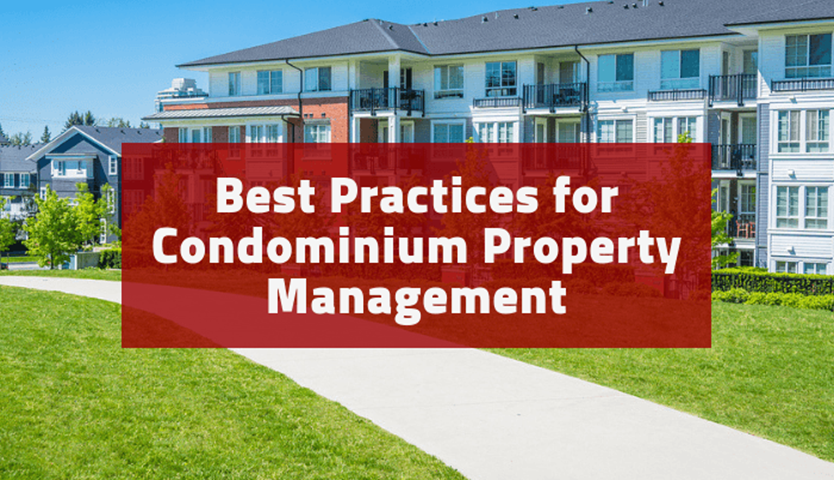Explore the role of condo property managers in resolving conflicts between condo owners and associations. Trust their expertise for peace in your community.
Living in a condominium complex offers many benefits, from shared amenities to a sense of community. However, it’s not uncommon for disputes and conflicts to arise between condo owners or between owners and the condo association. In this comprehensive guide, we will delve into how condo property managers handle these disputes, ensuring harmony within the community.
1. Open Communication: The First Line of Defense
Effective communication is the cornerstone of conflict resolution in condo management. Property managers encourage condo owners to communicate their concerns, whether through written requests, emails, or face-to-face meetings. Timely and open communication often prevents minor issues from escalating into major conflicts.
2. Establish Clear Rules and Regulations
To avoid conflicts, condo associations must have clear and well-documented rules and regulations. Property managers ensure that all residents are aware of these guidelines, including any restrictions on noise, pet ownership, or property alterations. When disputes arise, they can refer back to these established rules for resolution.
3. Mediation and Arbitration
When disputes persist, property managers can act as mediators or arrange for professional mediators to facilitate discussions between the parties involved. Mediation provides a neutral platform for finding common ground and reaching mutually agreeable solutions. In more severe cases, arbitration may be necessary, where an impartial arbitrator makes binding decisions.
4. Legal Expertise
Some disputes may require legal intervention. Property managers work closely with condo association attorneys to navigate complex legal issues, such as breaches of contract, non-payment of fees, or property damage claims. Legal experts can provide guidance on the best course of action.
5. Enforce Condo Association Bylaws
Condo associations have governing bylaws that dictate how the community should operate. Property managers ensure that these bylaws are consistently enforced. When conflicts arise, they may refer to these bylaws to determine the appropriate course of action.
6. Maintenance of Common Areas
Disputes often revolve around the maintenance of common areas. Property managers take charge of scheduling regular maintenance and repairs, ensuring that common spaces are well-kept. This proactive approach can prevent conflicts over issues like cleanliness or safety.
7. Financial Transparency
Financial disputes can be especially contentious. Property managers maintain financial transparency by providing regular financial reports and explanations of condo association budgets. This helps owners understand where their fees are allocated and reduces mistrust.
8. Alternative Dispute Resolution (ADR) Programs
Many condo associations offer ADR programs as a cost-effective and efficient way to resolve disputes. Property managers can guide residents through these programs, which often involve third-party mediators or arbitrators.
9. Documentation and Records
Property managers maintain detailed records of all communications, disputes, and resolutions. Documentation is vital in case legal action is required. These records can also serve as precedents for handling similar disputes in the future.
10. Education and Conflict Prevention
Property managers often provide education on conflict prevention and resolution to condo owners. Workshops, seminars, or informational materials can help residents understand their rights and responsibilities and encourage proactive conflict resolution.
11. Conflict Resolution Training
Property managers are often trained in conflict resolution techniques. This training equips them with the skills necessary to navigate tense situations calmly and professionally. They can employ de-escalation tactics and active listening to understand the root causes of conflicts better.
12. Peer Review Committees
Some condo associations establish peer review committees composed of condo owners who are not directly involved in the dispute. Property managers may coordinate these committees to provide impartial perspectives and help mediate disagreements.
13. Temporary Solutions
In urgent cases, property managers can implement temporary solutions while the dispute is being resolved. For example, if a dispute arises over a shared parking space, they may assign temporary parking arrangements until a permanent resolution is reached.
14. Community Meetings
Regular community meetings can serve as a platform for addressing common concerns and conflicts. Property managers facilitate these meetings, allowing residents to voice their grievances and propose solutions collectively. This communal approach fosters a sense of ownership in conflict resolution.
15. Conflict Tracking Software
Modern property management often involves the use of conflict tracking software. This technology allows property managers to log and monitor disputes, ensuring that no issue falls through the cracks and that resolutions are tracked efficiently.
16. Crisis Communication Plans
In the event of significant disputes, property managers may have crisis communication plans in place. These plans outline how to communicate with residents, provide updates on the resolution process, and manage public relations to prevent the situation from escalating further.
17. Escalation Protocols
For complex disputes that require higher-level intervention, property managers follow escalation protocols. This may involve involving the condo association board or seeking expert legal counsel to ensure that the dispute is handled with the appropriate level of expertise.
18. Conflict Avoidance Strategies
Property managers also proactively implement strategies to prevent conflicts from arising in the first place. This includes educating residents on community guidelines and fostering a culture of respect and cooperation within the condominium community.
19. Feedback Mechanisms
To continuously improve conflict resolution processes, property managers may implement feedback mechanisms. They encourage residents to provide input on how conflicts were handled and use this feedback to refine their conflict resolution strategies.
20. Ongoing Mediation Services
In some communities, property managers offer ongoing mediation services, where trained mediators are readily available to help residents resolve disputes quickly and efficiently. This service can significantly reduce the duration and intensity of conflicts.
In conclusion, handling disputes and conflicts in condo property management requires a multifaceted approach. Property managers must possess strong communication and conflict resolution skills, enforce community rules, seek legal guidance when necessary, and proactively work to prevent disputes. By employing these strategies and continuously improving their conflict resolution processes, property managers play a vital role in maintaining harmony within condominium communities, ensuring that residents can enjoy a peaceful and enjoyable living environment.


